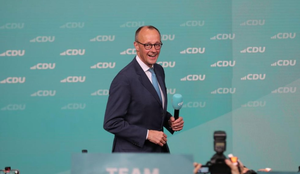The world finally heaved a sigh of relief after the World Health Organization (WHO) announced last week that COVID-19 is no longer a public health emergency of international concern (PHEIC). The Director General of WHO, Tedros Adhanom Ghebreyesus, made public the recommendation by the organization’s COVID-19 emergency committee not to treat the virus as a matter of international public health emergency. The committee arrived at this conclusion after it found decreasing trend in deaths and hospitalisations and high levels of population immunity. The COVID-19 PHEIC was declared on January 30, 2020. The decision forced countries to start reporting cases to the WHO to create worldwide surveillance.
In the three years that have passed since the PHEIC was first announced, countries reported 7 million deaths to the WHO. This is but a conservative estimate since figures have from time to time been fudged by governments to hide their failure to tackle the pandemic and make adequate arrangements for hospitalisation, testing and providing free vaccinations. It is believed the actual figures of death could be two to three times higher.
However, the PHEIC has led to the governments strengthening healthcare systems and rolling out vaccination drives. In India, more than 90% of people above the age of 12 years have received their two primary doses. Since many were infected and vaccinated, the population has developed a ‘hybrid immunity’ that has been shown to offer better protection against future severe disease. It appears the health systems are no longer stressed as they were at the height of the pandemic. The focus is now back on non-Covid conditions that were neglected during 2020 and 2021. In that sense the latest WHO announcement will hopefully help governments to rearrange their health priorities.
At the same time this is not yet time for celebration that the world is at last free from the grip of the deadly virus. True, advancement of science and technology since the last pandemic that ravaged the world a century ago has enabled the world to recover from the catastrophe in a relatively short period of time. But, Tedros has sounded a cautious note. It is time, he has pointed out, for countries to transition from emergency mode to managing COVID-19 alongside other infectious diseases.
As for India, it experienced three distinct waves of Covid-19 infections. The first wave, from mid-2020 to around September, 2020 was caused by the original variant. In those early days doctors were not sure of the treatment to be administered and the guidelines changed frequently. Testing was virtually non-existent. Death toll jumped every day devastating homes after homes. Hospitals could not provide even oxygen and patients afflicted with COVID-19 died without getting treatment. Some governments tried to hush up the extent of the disaster by dumping bodies into rivers like Uttar Pradesh did in the ‘holy’ Ganga.
The second wave in April-May 2021 saw a large number of cases and deaths over a short period. The surge was caused by the Delta variant. As a result, hospitals were overflowing with people in need of oxygen and ventilator support. The third wave, driven by the Omicron variant, was smaller in terms of number of cases and hospitalisations and deaths. At the peak of the pandemic in mid-January, 2022 about 2.1 million cases were reported in a week, but the number of deaths were only about 7,800.
However, with more testing facilities and vaccination coverage the situation has improved and the case load during April was reported to be about 12,000 a day. The numbers have, however, started going down again — only 3,611 new cases were reported across the country late last week.
For some time the people have been behaving as if COVID-19 is a thing of the past and constantly lowering the guard. The USA has already announced that its COVID-19 health emergency will end on 11 May. That means US residents will lose access to free COVID-19 testing, vaccines and treatment. This is a trap the world should not fall into. It is said eternal vigilance is the price of freedom. The maxim applies to the fight against Corona virus too.






































